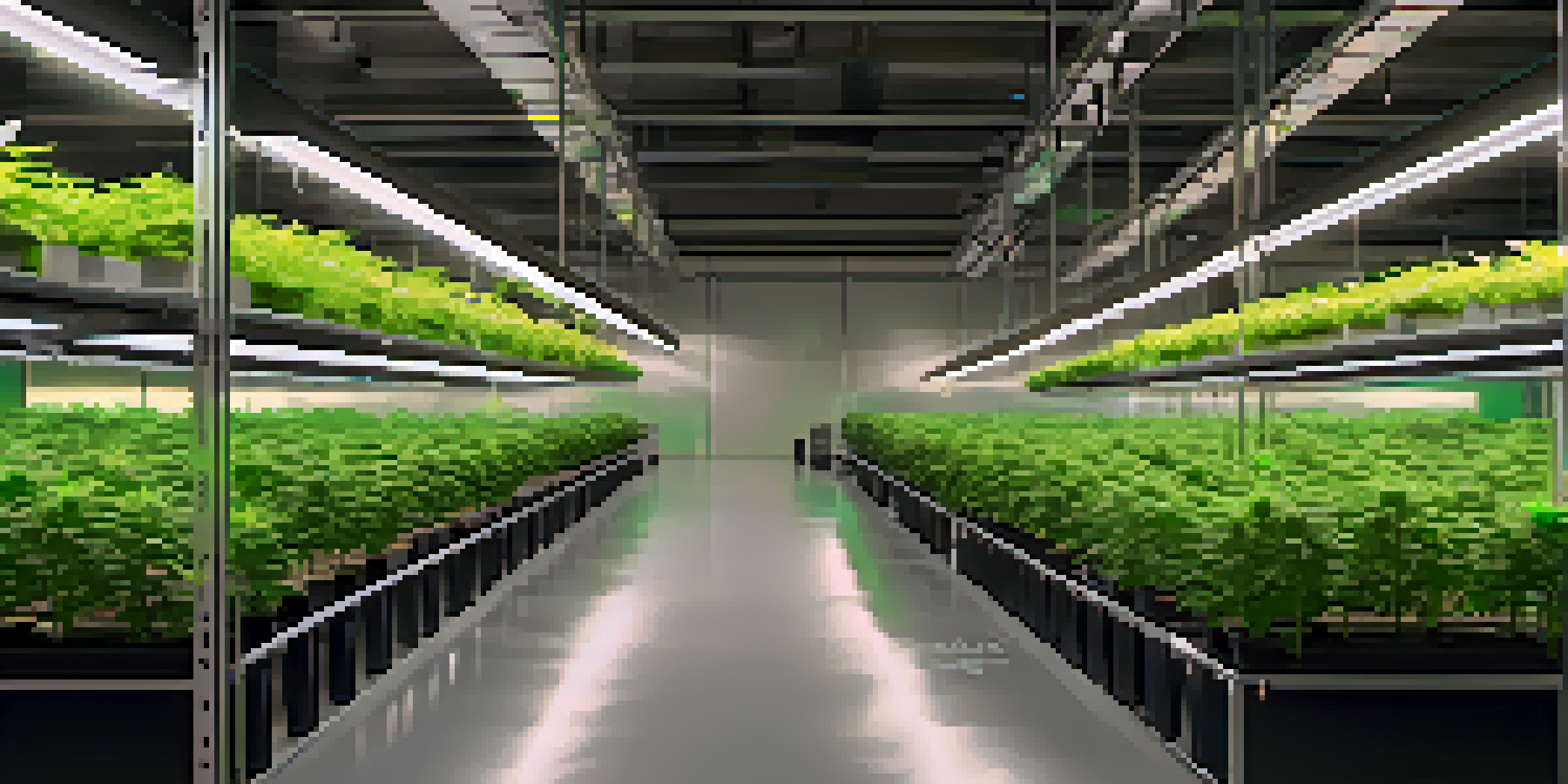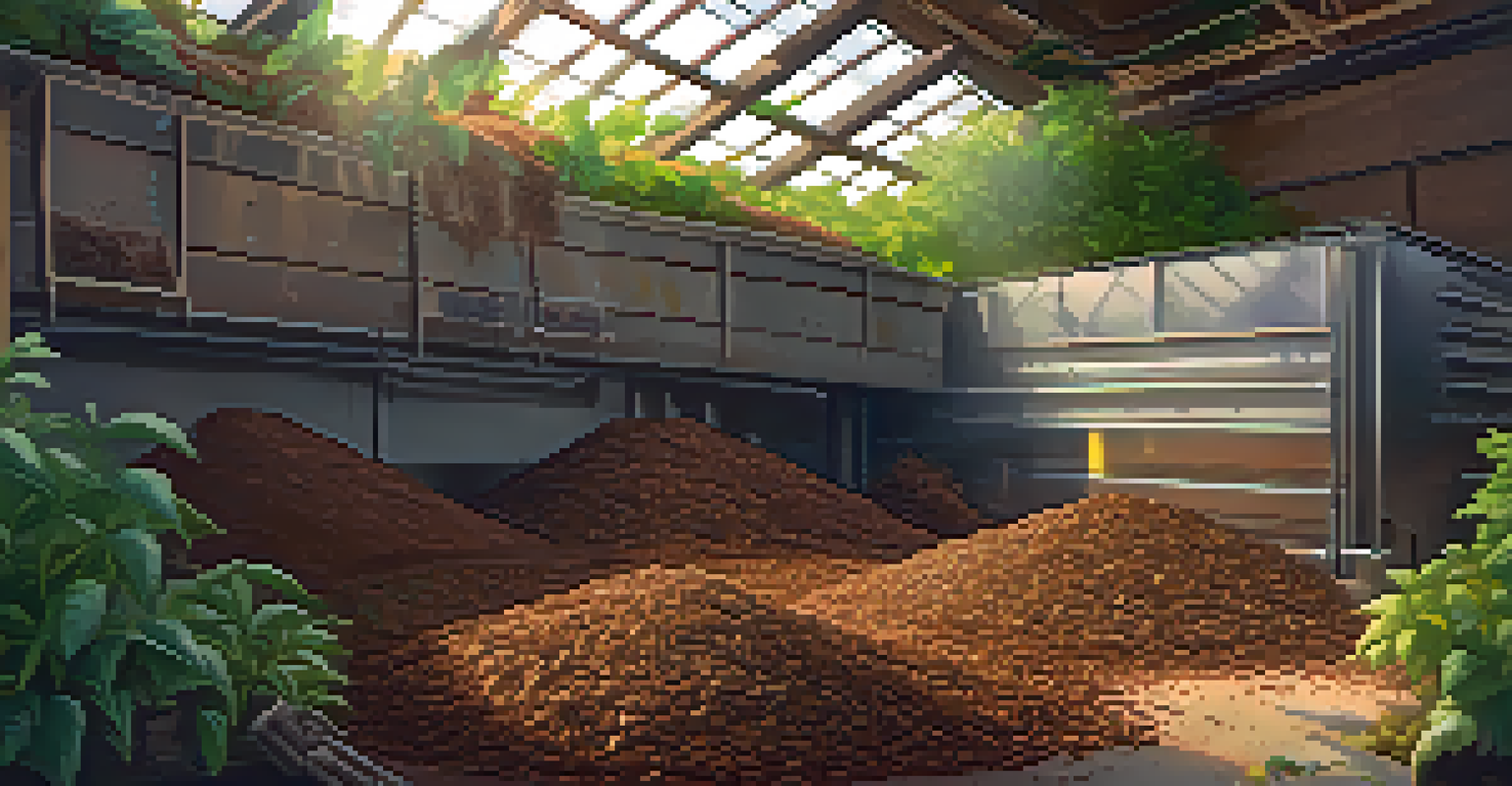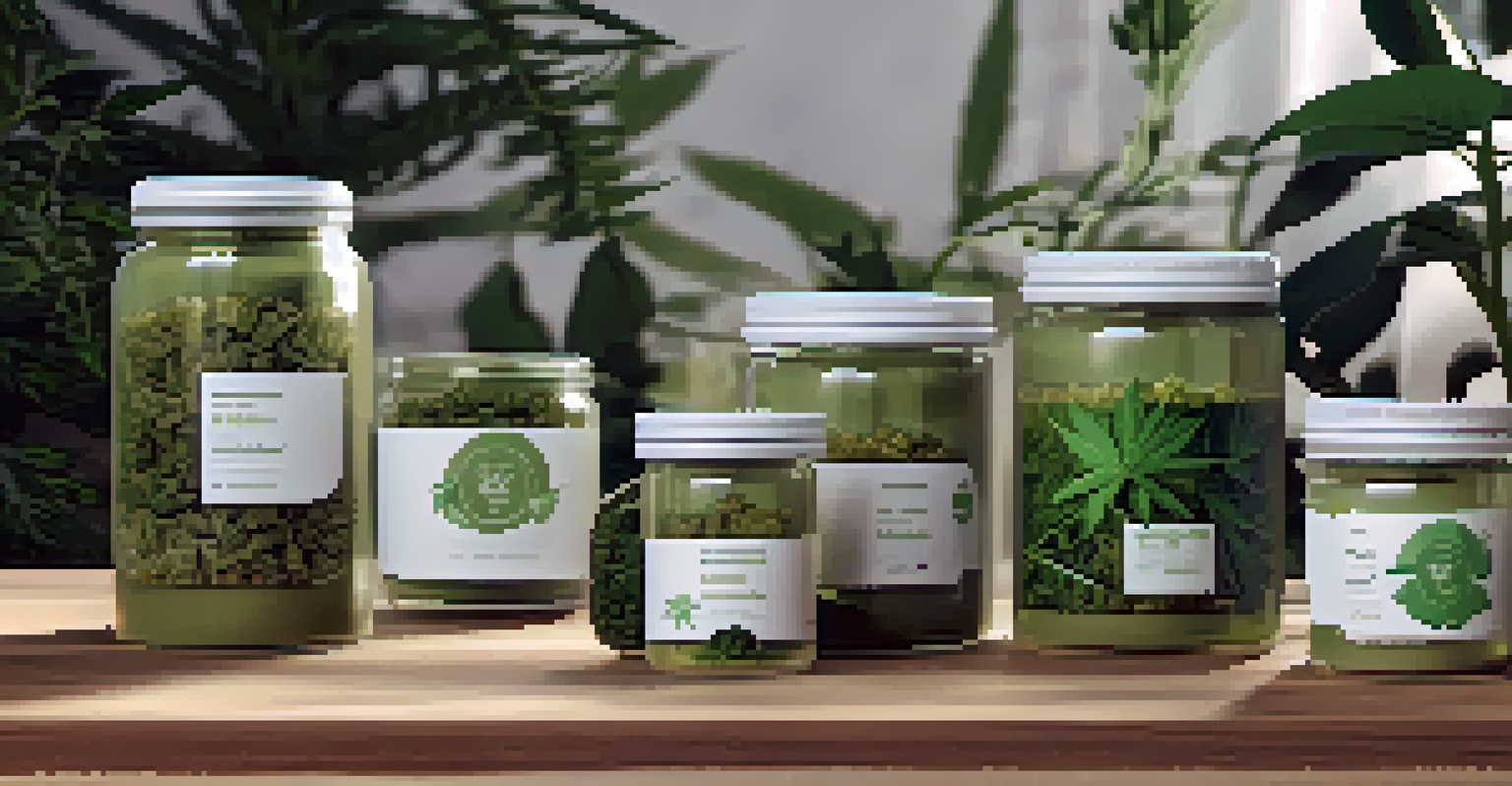Strategies for Reducing Waste in Marijuana Production

Understanding the Waste in Marijuana Production
In the cannabis industry, waste can take many forms, including plant material, packaging, and energy consumption. Understanding where waste originates is the first step in addressing it. For instance, during cultivation, excess leaves and stems often go unused, contributing to landfill overflow.
Waste is a design flaw, and like any flaw, it can be designed out.
Additionally, the packaging used for cannabis products can be excessive and not always recyclable. This is particularly problematic given the rising environmental concerns associated with plastic waste. By identifying these sources, producers can begin to strategize on how to mitigate them effectively.
It's also important to consider energy waste during the production process. Many growers rely on high-intensity lights and climate control systems, which can lead to significant energy use. Thus, recognizing these areas of waste sets the groundwork for more sustainable practices.
Implementing Composting Systems
One of the most effective strategies for reducing waste in marijuana production is implementing a composting system. This approach allows growers to recycle plant waste, turning what might be discarded into nutrient-rich compost for future crops. Not only does this reduce landfill contributions, but it also enhances soil health.

Composting can be as simple as setting up a designated area for plant scraps. By maintaining the right balance of green and brown materials, growers can create compost that breaks down efficiently. This process not only cuts down on waste but also reduces the need for chemical fertilizers.
Reduce Waste with Composting
Implementing composting systems allows marijuana producers to recycle plant waste into nutrient-rich compost, enhancing sustainability.
Furthermore, educating staff about the benefits of composting can foster a culture of sustainability within the production facility. When everyone is on board, the transition to a zero-waste mindset becomes easier, making composting a key player in waste reduction efforts.
Utilizing Efficient Water Management Practices
Water waste is a significant concern in marijuana production, especially in regions with limited water resources. Implementing efficient water management practices can drastically reduce this waste. Techniques such as drip irrigation allow growers to deliver water directly to the plant roots, minimizing evaporation and runoff.
The greatest threat to our planet is the belief that someone else will save it.
Additionally, collecting rainwater and using gray water systems can provide alternative sources for irrigation. This not only conserves fresh water but also reduces the overall cost of water usage in production. By integrating these systems, growers can significantly lessen their environmental footprint.
Monitoring moisture levels in the soil can also aid in preventing over-watering. By utilizing soil sensors, producers can ensure they are meeting the plants’ needs without excess, leading to a more efficient use of water resources.
Embracing Sustainable Packaging Solutions
The packaging of marijuana products is often a major contributor to waste in the industry. By embracing sustainable packaging solutions, producers can make significant strides toward reducing their environmental impact. Options like biodegradable materials or reusable containers can greatly lessen the amount of plastic that ends up in landfills.
Moreover, transparent communication about packaging choices can resonate with consumers who are increasingly eco-conscious. By highlighting sustainable practices on product labels or promotional materials, brands can attract customers who value environmental responsibility.
Adopt Efficient Water Practices
Utilizing efficient water management techniques, such as drip irrigation and rainwater collection, can significantly minimize water waste in cannabis cultivation.
Transitioning to sustainable packaging may require an upfront investment, but the long-term benefits can outweigh the costs. Many consumers are willing to pay a premium for products that are packaged responsibly, making this an effective strategy for both waste reduction and brand loyalty.
Reducing Energy Consumption in Cultivation
Energy consumption is a crucial factor in marijuana production, and reducing it can lead to significant waste reduction. By investing in energy-efficient lighting systems, such as LED grow lights, growers can cut down on energy use while also improving plant growth. LEDs consume less power and have a longer lifespan than traditional lighting, making them a smart choice.
In addition to lighting, optimizing climate control systems can further reduce energy waste. By using programmable thermostats and energy-efficient HVAC systems, producers can maintain ideal growing conditions without excessive energy consumption. This approach not only benefits the environment but can also lead to lower operational costs.
Lastly, incorporating renewable energy sources, such as solar panels, can provide a sustainable solution for energy needs. By harnessing natural resources, growers can significantly decrease their reliance on non-renewable energy, promoting a more eco-friendly cultivation process.
Encouraging Waste Reduction Among Employees
Creating a culture of waste reduction among employees is essential for the success of any sustainability initiative. Training sessions focused on waste management practices can empower staff to take an active role in reducing waste. When employees understand the environmental impact of their actions, they are more likely to adopt sustainable practices.
Incentivizing waste reduction can also motivate employees to participate actively. This could include rewards for teams that successfully implement waste reduction strategies or recognition for individuals who come up with innovative solutions. When waste reduction becomes a shared goal, it fosters teamwork and accountability.
Shift to Sustainable Packaging
Transitioning to biodegradable or reusable packaging helps reduce plastic waste while appealing to eco-conscious consumers.
Additionally, regular meetings to discuss waste management progress can keep the conversation alive and encourage ongoing improvement. By making waste reduction a part of the company culture, producers can ensure that sustainability remains a priority at all levels.
Collaborating with Local Organizations for Sustainable Practices
Collaborating with local organizations can be a powerful way to enhance sustainability efforts in marijuana production. By partnering with environmental groups, producers can gain access to resources and knowledge about best practices in waste reduction. This collaboration can also lend credibility to the business, demonstrating a commitment to environmental stewardship.
Additionally, local organizations may offer support for community initiatives, such as clean-up events or educational programs focused on sustainability. By participating in these efforts, marijuana producers can strengthen their ties to the community while promoting a positive image.

Such collaborations can also open doors to shared resources, like composting facilities or recycling programs, which can help streamline waste reduction efforts. By working together, local businesses and organizations can create a more sustainable future for the cannabis industry and the community.
Monitoring and Measuring Waste Reduction Efforts
Finally, monitoring and measuring waste reduction efforts is crucial for understanding the effectiveness of implemented strategies. By establishing clear metrics, producers can track their progress and identify areas needing improvement. This data-driven approach helps ensure that waste reduction goals are not only set but also achieved.
Regular audits of waste produced can provide insights into which practices work best and which need to be adjusted. For instance, if composting efforts yield less compost than expected, it may prompt a review of the composting process itself. Continuous evaluation allows for ongoing refinement of waste reduction strategies.
Incorporating feedback from employees and collaborators can also enhance monitoring efforts. By creating an open dialogue about waste reduction, producers can gather valuable insights that contribute to more effective practices and a more sustainable approach to marijuana production.